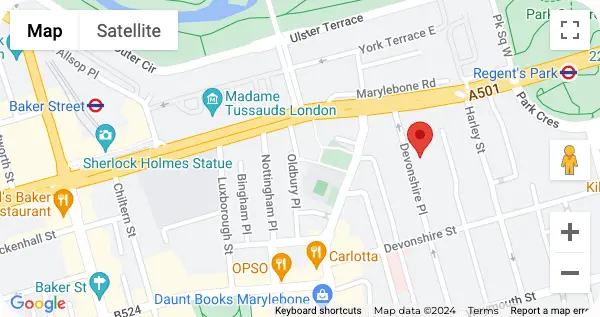Condition: Skin Inflammation
Skin Inflammation symptoms
& causes

Dermatological
Non-surgical
Surgical
Body Concerns
Health & Wellness
Skin & Face
Expert care for a wide range of skin conditions, ensuring healthy, radiant skin.
Lesions & Bumps
Comprehensive care for skin lesions and bumps, promoting clear and healthy skin.
Lifting & Tightening
Advanced treatments to lift and lighten the skin, enhancing firmness and brightness.
Rejuvenation
Revitalize your skin with advanced treatments designed to restore a youthful glow.
Skin Treatments
Effective solutions for a variety of skin concerns, promoting clear and healthy skin.
Wellness
Holistic skincare approaches to support overall skin health and well-being.
Advanced, non-invasive treatments to rejuvenate your appearance without surgery.
Body Treatments
Transformative, non-invasive treatments to sculpt and tone your body effortlessly.
Facial Treatments
Rejuvenating facial treatments to refresh and enhance your natural radiance.
Hair Treatments
Advanced treatments to restore hair vitality and promote healthy growth.
Injectables
Minimally invasive injectables to smooth wrinkles and enhance facial contours.
Precision cosmetic surgery tailored to enhance and refine your natural beauty.
Body Surgery
Expertly performed body surgeries to reshape, contour, and enhance your physique.
Breast Surgery
Specialized breast surgeries to enhance shape, size, and symmetry for a natural look.
Cosmetic Andrology
Advanced procedures designed to enhance male aesthetics and address intimate concerns.
Cosmetic Gynaecology
Tailored surgical solutions to enhance feminine aesthetics and improve intimate well-being.
Facial Surgery
Precision facial surgeries to refine features and achieve natural, balanced results.
Fat Transfer/Removal
Advanced fat transfer and removal techniques to sculpt and enhance your body’s contours.
Comprehensive solutions to address a range of body concerns, from stubborn fat to skin laxity.
Breasts
Tailored solutions for breast concerns, including size, shape, and symmetry.
Other Areas
Targeted solutions for stubborn areas of the body, tailored to your unique needs.
Volume & Contouring
Specialized treatments to enhance body volume and improve overall contour for a balanced silhouette.
Holistic care focused on improving overall health and well-being for a balanced lifestyle.
Digestive Health
Comprehensive care to support digestive health and improve overall well-being.
Energy & Immunity
Holistic approaches to boost energy levels and strengthen your immune system for optimal health.
General Health
Personalized strategies to maintain and enhance your overall health and vitality.
Expert care for a wide variety of skin and facial concerns, promoting a healthy, glowing complexion.
Ageing Signs
Expert treatments to minimize ageing signs, rejuvenating your skin for a youthful glow.
Skin Texture & Tone
Advanced treatments to improve skin texture and even out tone for a smoother, radiant complexion.
Specific Areas
Targeted treatments to address skin concerns in specific facial areas for balanced, refined results.
Volume & Contouring
Tailored solutions to restore facial volume and enhance natural contours for a more youthful appearance.

What is Skin Inflammation?
Skin inflammation is when your skin is red, swollen, and irritated. This typically occurs when the skin reacts to an irritant, allergen or antibacterial agent. Although inflammation is the body’s protective mechanism, it can make skin dry and sensitive when excessive.
Sun damage, harsh chemicals, pollution and inadequate skin care can exacerbate the issue. Inflammation can be also triggered by hormonal fluctuations, dryness and stress. While it’s not dangerous, it can be uncomfortable and make you feel bad about your skin. Proper skin care can soothe inflammation and preserve its health.
The Most Common Causes of Skin Inflammation:
What Does Skin inflammation Feel Like?
Skin inflammation can be irritating and uncomfortable to deal with. It frequently results in skin that feels irritated, sensitive, and lacking balance. Your skin may appear red, itchy, or even feel irritated to the touch; you might feel heat or burning. Untreated pain can lead to complications where your self-confidence and daily routine get worse. Common conditions associated with skin inflammation include:
Redness, often with warmth, is one of the earliest signs of skin inflammation. It’s the body’s natural way of fighting off irritants or infection.
Inflammation makes your skin feel itchy, irritated and uncomfortable. That will cause other symptoms of the inflammation to be worse, making the injury.
Inflammation damages the skin’s barrier and makes it lose moisture. This makes skin dry and flaky and leaves it rough to the touch.
Inflamed skin might swell and become puffy and the affected area may feel tight or tender.
Inflamed skin is often tender to the touch and mildly reactive, meaning it can react in a big way to products, environmental factors and even light touch.
In severe cases skin infection, inflammation can cause the skin to peel or crack, increasing its susceptibility to infections and further irritation.
When skin inflammation has become chronic, bothersome or is affecting your normal life, it’s time to get help from a professional.
Seeking professional help for Skin Inflammation
If redness, itching or swelling doesn’t improve with use of gentle skin-care products or home remedies, a dermatologist can evaluate the condition and recommend effective treatments.
If your skin looks infected, including the presence of pus, significant redness, or expanding inflammation, it should be obvious that medical attention is required. In some instances, inflammation can point to underlying skin conditions such skin diseases such as eczema or psoriasis, both of which need specific treatment.
When inflammation is acute or chronic, over-the-counter treatments could stop being effective. Prescription creams, antibiotics, or advanced skincare are professional treatments to help you combat inflammation and restore your skin’s natural balance.
Skin irritation occurs when the skin responds to irritating substances such as harsh soaps, bacteria, or allergens. This allergic reaction can also be caused by certain skin conditions like eczema or rosacea. Overexposure to sunlight, stress and dry skin can strip the skin of its protective barrier, allowing irritants to cause redness and itching. When the skin barrier is compromised, skin is much more sensitive and makes inflammation progressively worse.
There are multiple things that can cause inflammation in the skin. Some people’s skin is more sensitive due to genetics. Inflammation can also be triggered by hormonal changes such as during puberty or menopause. Harsh products, no sunscreen, and not hydrating weaken the skin, making it easier for inflammation to develop and set in. Excess sun exposure can similarly degrade the skin’s barrier, resulting in chronic irritation.
Without proper treatment, inflammation can turn permanent, leaving skin looking constantly irritated and unhealthy with a background redness.
Inflamed skin weakens the skin’s barrier, making it more susceptible to dryness, sensitivity and infections.
Long-term inflammation may harm deeper skin layers, causing scars or uneven skin texture.
Inflamed skin reacts to products and environmental factors more, and has a lingering discomfort.
Use a gentle, broad-spectrum sunscreen to protect your most sensitive skin, from UV damage that can impair skin barrier function. Don’t use harsh soaps and skincare products that could cause inflammation.
Eat a Skin-Friendly Diet
Eat foods high in antioxidants, vitamins and omega-3 fatty acids to promote healthy skin and fight inflammation.
Use Gentle Skincare Products
You should also choose gentle, fragrance-free products that both cleanse, soothe, and protect the skin. Skip harsh exfoliation that can strip natural oils.
Skip the heavy exfoliation, harsh cleansers and aggressive skincare treatments that can degrade the skin barrier and break down collagen. Pick hydrating, collagen-boosting products infused with things like hyaluronic acid and peptides. Avoid dragging the skin downward.
Manage Stress Levels
Chronic stress compromises the skin’s barrier and can result in inflammation, so adding something to help you relax, such as meditation, is important.
Excessive sun weakens the skin barrier, which makes the skin more susceptible to inflammation. UV rays dehydrate and scar the skin, compromising its defenses. Apply a broad-spectrum sunscreen with your moisturizer daily and look for SPF in products to protect and hydrate skin
Gentle Cleansing
Steer clear of harsh soaps and scrubbing, which can rob natural oils and aggravate inflammation. Mild, fragrance-free cleansers to maintain skin balance
Stay Hydrated
Make sure you use products that are hydrating to your skin and drink lots of water too.
The dehydrated skin is weak and prone to irritation. There’s not enough moisture to help protect the skin from environmental stress, and it results in inflammation and redness.
Keep Skin Hydrated
Choose moisturizing products with calming ingredients such as ceramides and hyaluronic acid. Well-hydrated skin has a strong barrier that is less likely to become inflamed.
Excessive rubbing or scratching irritates the skin, worsening inflammation. Always pat the skin gently to avoid damage.
Reduce The Use Of Harsh Skin Treatment
Excessive chemical peels, strong exfoliants or aggressive treatments can damage the skin barrier and drive inflammation. Use mild, soothing skin-care products.











David Perkins
Saw Dr Omar who was great, friendly and professional.
Gillian And Bill McLeod
Wonderful consultation with Lesley!

Yasmin Juma
Very good service
Frida Carlow
Great treatment! Very helpful receptionist!
Mariana O.
The best clinic !

Prabs Rai
Painless and very reassuring

Robin Saxen
Very welcoming and informative.
Judith Durham
Very helpfull and amazing expirence

Ivelina Mileva
Fast, professional service with excellent quality!
Sarah Conners
Very professional and excellent care. Lovely premises.
59,645
Happy patients served.
Need to reach us?
Contact or visit our clinic.
We're based in central London at the historic 14 Devonshire Pl which is only a short 2 minute walk from Regents Park tube station a 10 minute taxi journey to Kings Cross, and St Pancras stations.
We're open Monday - Friday 8am - 8pm, and Saturdays 9am - 5pm, feel free to drop in to talk to a member of our team where they can answer any of your questions.
Alternatively book a free consultation, request a callback, or call us on 0207 4364441.
